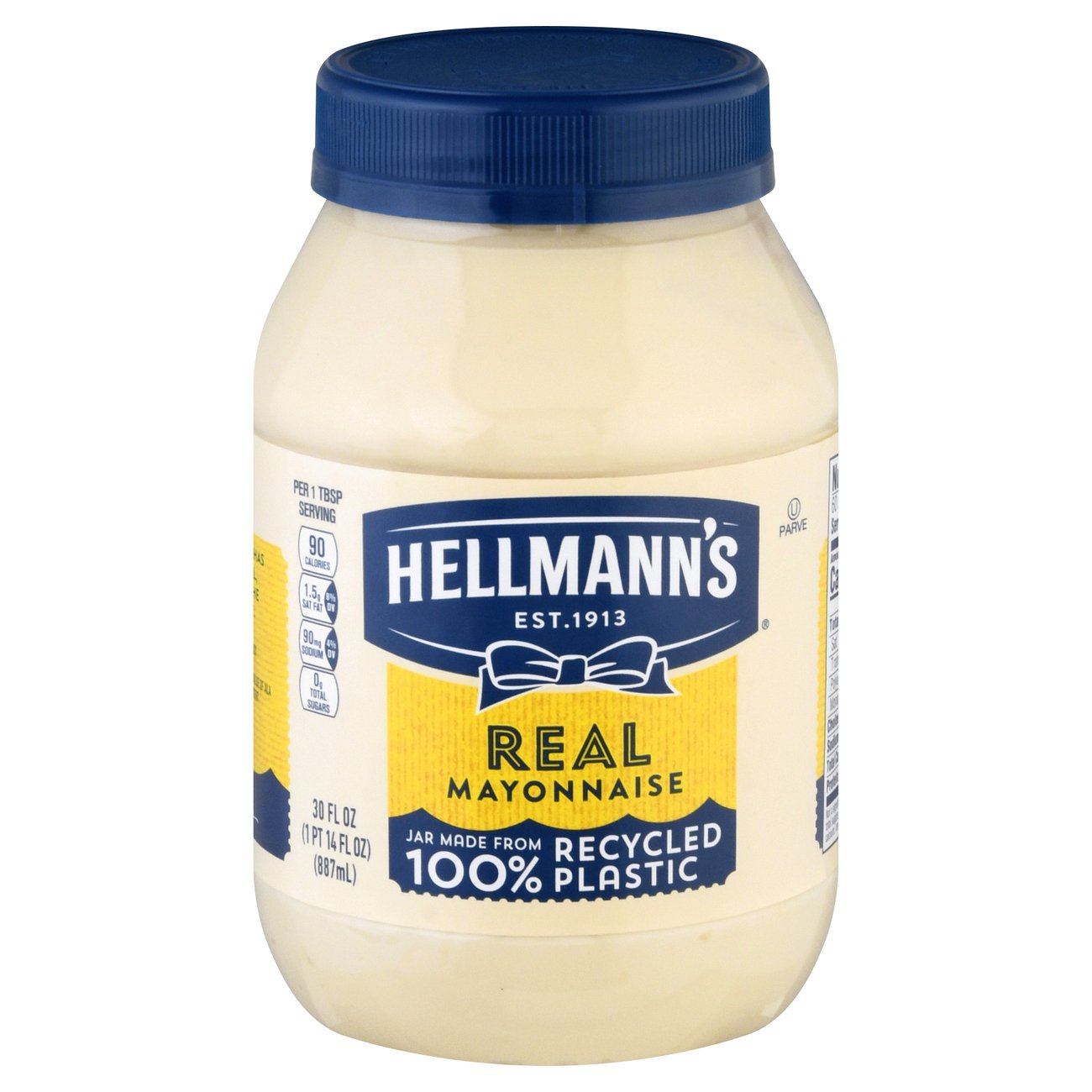You and me baby aint nothing but mamals, so lets lead a revolution like on discovery channel

This song has to be taken in the context of its time. You see, discovery channel used to air documentaries and animal shows.
Hehe I like you
like and share if u would beat a billionare with a metal pole
I’d use a thin bamboo stick first, that shit leaves a stinging burn sensation on the skin
Did you know, chimps don’t have remote killing drones, armored vehicles, or nuclear weapons.
Well human do, and its usually not the average person that have posession of those things.
Average military pay is like 2100/month so I guess if the dudes in charge of the nukes/drones/tanks decide to stop getting cucked by business interests it would probably be fine.
Or decide not to kill their relatives. Like in previous revolutions ;)
That doesn’t always happen, look at the massacres in South Korea before the end of the dictatorship.
The numbers on wikipedia are lower than actual numbers as questioning them could literally get you executed until the 90s. For example the official number for the Gwangju uprising is 165, but the city recorded an extra 2300 deaths above historical averages for May. That doesn’t include thousands who were arrested, many of whom sentenced to death.
The government ordered the soldiers to shoot the protesters, and they did, and hardly anyone knows about it today.
Indonesia is also worth looking at.
Don’t have to own em, just have to get the people paid to operate them on the right side
In addition to what MattsAlt said, the people in possession of those things still rely on you and me to meet all their wants and needs. So a crucial first step before they become edible is for us to stop meeting their wants and needs. Exactly who “possesses” what starts to become a little more ambiguous when that happens.
How many wars the US has won since WWII?
And?
You should watch the movie Ants, it’s an amazing example of why this line of reasoning doesn’t hold water.
the maoist uprising against the landlords was the largest and most comprehensive proletarian revolution in history, and led to almost totally-equal redistribution of land among the peasantry
based
deleted by creator
Unfortunately Mao was an idiot surrounded by sycophants who killed more of his countrymen through incompetent policies than Stalin did with his purges.
People always say Mao killed so many people, but when pressed for how they just say “famine”. If that’s the standard, how many people does world capitalism kill? Don’t let perfect be the enemy of good🤷♂️
A famine caused because of his agricultural reforms such as telling farmers to plant their seeds twice as close together to double yield. Or how about killing all the sparrows who were thought to be pests but actually ate the insects. Then when all the crops fail to roll in after harvest you send goon squads out to bully and arrest farmers for “hoarding food” when in fact the crops failed partly because he enforced these asinine policies.
Now if they could recognize shits going wrong then that would help but nobody wants to tell Mao he was wrong about some of his “great leap foward” reforms so they just continue to scapegoat and abuse the now starving farmers.
He did a lot of good things but if your fail to look at the bad things honestly then you are just a fanboy propagandist for autocracy.
So weird how under the leadership of the CPC and Mao in particular, the known cycle in China of recurring severe famines that had plagued the country for centuries just, well, ended. Another one of those weird coincidences that happened in spite of their stated efforts to end hunger ig. So weird that food insecurity is vastly worse right now in the US than in China, where it barely even exists.

This chart applies to every developing country in the world and says nothing specifically about China. Even Nigeria, a neo colonial hell hole plagued by famines, follows the same trend.
Ok, so let’s take the grain of truth and actually examine it and see how many lies of obfuscation fall out when we do…
It’s true that many developing countries experienced significant increases in life expectancy during the 20th century. Some of the main reasons this happened was due to global advancements in medicine, public health measures, and improved living standards. It should be noted that the USSR led the way in these, being as focused as it was on such things as using state capacity to improve public health (and this despite the massive losses it incurred while defeating the Nazis and liberating western Europe from them, resulting in the decimation of an entire Soviet generation. But this is another remarkable communist achievement for a different post). Most of what we’re talking about here was before the era of neoliberalism in the west, so capitalist countries weren’t as outright opposed to things like public health at the time, but it was still a distant priority behind profits and domination. Public health tended then, as now, seen as merely a means to the end of capitalist accumulation rather than valued as an end in and of itself. One should look into the USSR’s drive to cure smallpox, and how its eradication would not have been possible had it been left up entirely to the US, but that’s another digression.
The statement from the comment above about how ‘this improvement in Chinese life quality was actually a phenomenon happening all over’ paints with too broad a brush, so ridiculously broad as to cover up all the relevant details and thus reality of the matter which is that there was tremendous variation in progress across the world. While the overall trend of increasing life expectancy is common, the rate and timing of improvement varied significantly between countries. China’s progress was astounding in how rapid and substantial its progress was when compared to other developing nations. And the fact that it happened coinciding with the victory of the PLA, the leadership of the CPC, and their founding of the PRC, should make it obvious why this improvement was suddenly able to happen, and not some fluke coincidence as was laid out by u/isa41. Since it was the country Nigera that was brought up by the know-nothing let’s go ahead and use Nigeria as the example to consider this variation.
Nigeria did indeed see improvements in life expectancy, but its trajectory differs drastically from China’s. Nigeria’s progress was and has been slower and less dramatic, full of “fits and starts.” In the 1960s, for example, Nigeria’s life expectancy was below 50 years. It has improved since then, but as a slow incline and nowhere near as rapidly as China’s, which the graph that @[email protected] posted shows. I haven’t gone around to find all other countries life expectancy graphs just to write up this reply, but I would bet that if I challenged someone to find a graph (that isn’t fudged or manipulated obviously) that shows the kind of rapid progress and on such a grand of a scale as China, they would not be able to find one. Well, someone might… if they found one for the USSR, just set back a few decades. Because the only other place where you can find that kind of rapid improvement sustained over that length of time for that many people would be the Soviet Union.
What this liberal ideologue is trying to cover up here is that what is so astounding about this graph is not simply that improvement happened, but the degree of it. The sheer number of people involved and importantly the rate of change (first derivative). The agenda to discredit the jaw-dropping achievement of the CPC in improving the lives of the Chinese people becomes as obvious as it is odious.
The fact of the matter is, the steep incline in China’s life expectancy in the late 1940s and early 1950s was more pronounced than in any other developing countries. This rapid improvement was influenced by specific policies and initiatives implemented by the new government, including widespread public health campaigns and improvements in basic healthcare access, as well as education that included teaching about healthcare.
Also, the statement about Nigeria being “plagued by famines” and following the same trend is completely inaccurate. While Nigeria has faced food security challenges, it hasn’t experienced famines on the scale that China did in its history. To say otherwise is just lying. China’s life expectancy trend did include setbacks, most notably during the Great Famine of 1959-1961, which is not typical of all developing countries, but they were always learned from and corrected for, something you won’t see in countries plagued by capitalist exploitation which tends also to bring things like war and instability.
In short, don’t be fooled by these losers with an agenda who are either sinophobes, anticommunists (which itself can’t be separated from fascism it turns out), or just deeply misled people who simply can’t accept that reality doesn’t conform to their worldview and seek to distort the truth so that it better appears to. Seek to see reality for what it really is. Don’t be a lib trying to wrap the world around your flawed idealist notions. Understand and apply material analysis.
Stop calling anyone who doesnt follow your narrow vision of events a liberal. It’s lazy. I’m an anarchist (and frankly not very interested in your bootlicking excuses).
Stop calling anyone who doesnt follow your narrow vision of events a liberal. It’s lazy.
Stop calling readily verifiable historic fact my “narrow vision of events” like a liberal would. It’s pathetic.
As for calling you a liberal, well… “Walks like a duck, quacks like a duck…”
 But that’s not lazy, it’s just being honest. When I was an anarchist, I hadn’t studied enough history, yet importantly I didn’t engage in historic revisionism to justify my ideological outlook nor to try to wash away the profound achievements of my leftist comrades. That is something liberals do. Even if you call yourself an anarchist, my assessment of your liberalism was still fair and accurate. If you don’t want to be called a liberal, stop doing the exact thing liberals are known for doing and that actual anarchists do not do.
But that’s not lazy, it’s just being honest. When I was an anarchist, I hadn’t studied enough history, yet importantly I didn’t engage in historic revisionism to justify my ideological outlook nor to try to wash away the profound achievements of my leftist comrades. That is something liberals do. Even if you call yourself an anarchist, my assessment of your liberalism was still fair and accurate. If you don’t want to be called a liberal, stop doing the exact thing liberals are known for doing and that actual anarchists do not do.(and frankly not very interested in your bootlicking excuses).
lol. Yeah, material analysis is “bootlicking excuses.” Friggin’ liberal.
Totally not because the whole world industrialized and modern medicine made its way into China. This trend could be in spite of Mao and not because of him.
Correlation does not equal causation.
The industrial revolution had already long since happened, dipshit. I wonder why at that very specific fucking time, China was finally able to industrialize the way that countries exploiting it already had. HMMM. Why might that come about then? Better put on my big thinking cap about that one.
“and modern medicine made its way into China.”
HUH? Wow, I wonder why it made it’s way into China right then? What a WACKY coincidence!
This trend could be in spite of Mao and not because of him.
Mao was following (and building upon) Marxism-Leninism which among other things is a science that predicts how industrialization occurs and can be used as a roadmap for how to achieve it. The fact that Mao followed and forged this roadmap with the stated intent to do so and that expected result happened is not a “trend in spite of” literally the policies you can look up that he (and the CPC) implemented with the purpose of achieving that very thing. (I’m facepalming so hard rn).
Correlation does not equal causation.
No, but you know what? Causation does equal causation, like when someone says “I’m going to throw this ball” and you watch them throw a ball, you can be pretty confident that the ball is moving through the air because their throwing it, which they said they were going to do and you saw them do, caused that to happen. Nah, it must be some other hidden corollary that is the reason the ball suddenly left their hand and moved through the air. Frankly it’s embarrassing to see someone trying to come up with excuses to hand wave away the obvious fucking truth that is right there and plain for anyone and everyone to see, at least anyone who isn’t frantically putting up blinders to try to protect their bullshit worldview.
Unfortunately Mao was an idiot surrounded by sycophants who killed more of his countrymen through incompetent policies than Stalin did with his purges.
Unfortunately burgerlanders are idiots surrounded by propaganda made by the empire that killed more people the world over through cruelty and policies of greed and exploitation than even Churchill did with his genocide of Indians.
You are an idiot. Mao was a brilliant and resolute (though imperfect) revolutionary that saved millions of people, pulled even more out of poverty, and set China on the path to becoming the superpower that it is. Surrounded by sycophants? lol, he famously called on the people not to blindly accept party bureaucracy and to fight injustice even when it means fighting his own communist party.
liberal detected
deleted by creator
Removed by mod
If anyone would like the actual article:
Every healthy economy has a robust guillotine maintenance capability.
If I had the opportunity for some street justice on a billionaire I wouldnt fucking hesitate. That said, it would change jack shit. His wealth just passes to the next asshole.
It would change things if it becomes systemic. If they learn to be scared of being a billionaire, maybe they’d be less likely to want to become one.
I think they’d just hire more security. They have the money for it.
Edit: I agree with your sentiment though
It is enough to have one person doing the inside job, but this will escalate too and… welcome to modern Russia
In a hypothetical world where billionaires cannot go outside a security perimeter for fear of their lives, how soon would we see people refusing the inheritance or donating massive portions?
You just assume that everyone rich would seem rich. If i got billions noone would know. Not everyone needs gargantuan houses and excessively expensive cars and yachts. I would still live in a moderatly tiny house because i don’t like housework AND don’t like strangers in my house doing that. In fact i just had billions. Nothing in my life would change. I’d be safe in your world 😁
Also what for? To show others i have money? So i could never ever trust a person again? Not everyone wants to be a rockstar. Only those whose personalities are so undeveloped that they need the constant ego-strokes from random strangers to even feel something. I just feel pity for jokes like elon musk.
True, but you’d need to really stay under the radar in such a world. Any point of contact where someone else knows you have that money would put you at risk. And those can be generated just by getting the money in the first place.
For the record I think it would be a terrible world. Historically, mob violence often kills innocent people, all it would take would be an accusation. And one person’s poverty is another person’s wealth. They wouldn’t exactly stop to ask about the economically defined classes. It would be more like, “Dave got a luxury car, I wonder how much money he’s hiding…”
And also, I think I would be someone giving it away as fast as possible. I’m like you, after a couple creature comforts and securing the rest of my life, there’s no more need for the money. It’s not like I can take it with me.
Thing is, there’s no way I could become a billionaire. If I were amassing money that quickly, it would be because I wasn’t paying my people enough.
The difference between billionaires and the rest of us is that we see that as a problem, they see it as the system working.
Totally right. Would be a horrible world. But for many it already is. Guess it’s reciprocal to your net worth. And it’s also no wonder people yearn for a violent solution. No sensible, human solution is possible. Billionaires don’t go away due to words.
Also yes. I make sure the tiny circle i call family is safe and sound and doesn’t need to worry about a number in some bank, but besides… I love boats yes, admittedly. But even with a gifted yacht i wouldn’t know what to do with it. A house on the water? I know people who e. G. drive fancy poser-cars. And when i ask them what makes this car so great, it usually comes down to… "errr because it’s (insert brand) ". And, of course, it’s brands that EVERYONE know is expensive. That’s the only reason. They wouldn’t pay the same for a brand noone even knows how expensive that is. It’s not the looks, not the features, not the power, not the feeling when driving, it’s the fucking price-tag.
But i also know the other kind. If you’d meet them on the street you would ask if they need a dollar or some food. But they’re more rare.
Can he trust his cook if it’s a brown person? 🤮
Eat the rich? They sure are making everything else too expensive.
Beat inflation at the grocery store (and everywhere else) with this one simple trick. Capitalists hate it!
What am I missing? Counterfeit bills?
You’re not missing anything. I shouldn’t have included the pic but I had just seen it minutes before reading the post and it felt like it fit. The one simple trick is what you said: eating the rich.
Nature is wise
They have a far more functional society than we do
Bezos might nuke us
Naw. He can’t afford to lose cheap labor
lose
cheapchimp labor.Once they have AI bots it’s game over.
This is honestly the reason why I don’t think we can achieve a successful uprising anymore. Probably not a nuke, but drones definitely could and would be used to tear through even the largest of mobs if they formed today. Marie Antoinette would be happily eating her cake watching her people get mowed down by autonomous turrets if the French revolution happened today.
IMO we are probably on the brink of the last possible society that can on a technical level. I would say, nukes, and even drone bombs etc… are unlikely to be utilized, simply due to collateral damage, infrastructure damage etc…
However, things like the boston dynamics spot etc… We’re probably a decade away from when 1 person can control an army of perfectly loyal soldiers.
Unless they’re maintaining the software themselves, there’s no such thing as perfectly loyal. In the past the revolutionaries needed to capture the armory, now they need to capture / subvert the servers / programmers.
It’s true… but with all things it’s a matter of quantity of people you need to be loyal… IE one commander who agrees with the cause, vs 100 soldiers that could talk about it.
Plus, it’s far easier to grow a concience on the field looking in the eyes of the children you are murdering, vs sitting in a computer or robot lab having no “need to know” what these robots do when they leave your office
Well we’re obviously in the right place for that
Oh shit this just got a lot more cyberpunk lol. Now I’m picturing Boston Dynamics robots being hacked by anti-fascist black hats…
If it’s got that kind of capability, it can be hacked.
I disagree, usage of drones hasn’t worked to put down any armed struggle in the US’s puppet states.
If it comes to that, which hopefully it doesn’t, we should remember lessons from Vietnam and Iraq. The US Military might be massively overpowered, but it can still struggle against a well-organized insurgency.
Naw it’s white folk that want to get their magic cards
It’s alright, given the current performance of Blue Origin it’ll take him a decade or two to get the missile working.
to get the missile working
If you know what I mean…
Not enough HGH in the world…
Time to return to monk
Imagine how good one would be off if we had just 1 or 2 million in the bank… apples would be like 5 bucks each but it would be nice for a good month. But anyway like how do we get say 500 bucks a week and they get 20,000? Or 3,000,000? Like how does that even make sense to anyone?
meRitOcRAcY, they wOrKed sO HaRd
Just like the Dutch haha
Just FYI, BTW




















